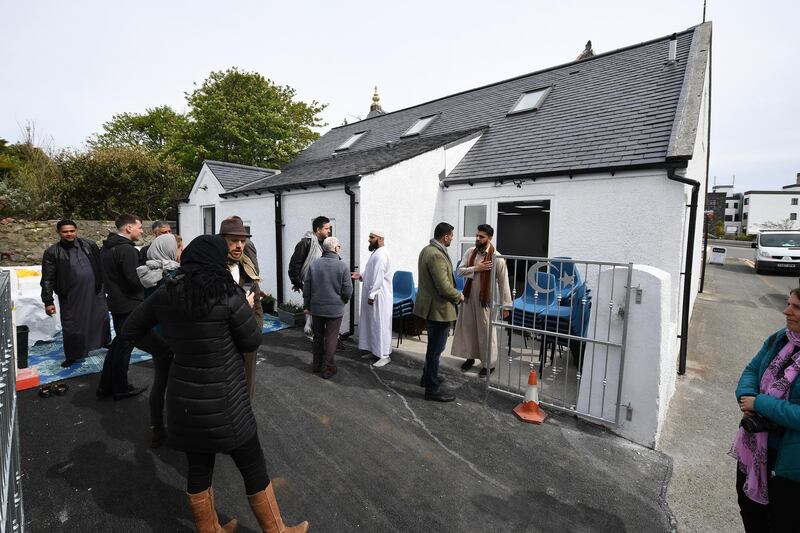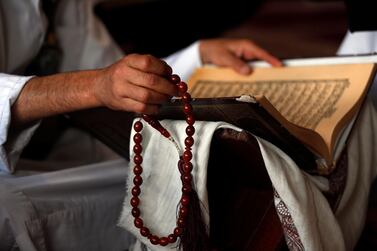After weeks in lockdown, many of us are starting to ask: what is really important in life? It gets us thinking, at an existential level, about what we really need to survive.
Some of the answers are straightforward: shelter, food, money, healthcare. Although even these basics are not privileges everyone has. Other things too: being in a home with people who are safe for us, good mental health, access to technology.
Another among them might be the right to religious practice. After all, for many believers, religion is part of their very raison d’etre. So what happens when the thing some believers feel is most essential to them – sharing in the fundamental, physical practice of their faith with their co-religionists – is unavailable?
This is a question now being raised by the executive chairman of one mosque in Bradford, in the UK. Tabassum Hussain is bringing a test case against the British government, arguing that the ban on Friday prayers that form part of the country's lockdown restrictions is "unlawful" because it breaches his human rights to practice his religion in the manner he feels necessary.
Muslim religious leaders in Britain and around the world have largely agreed that congregating for group prayers is not compulsory during the extraordinary context of the pandemic.
Throughout the Arab world, for example, authorities have promoted private prayer with family members living in the same household, in line with lockdown rules.
Mr Hussain's desired plan is to open the mosque only for Friday prayers, for just an hour and a half and for a maximum of 50 people, all of whom would be required to observe two-metre social distancing. The government has responded that the closure is justified by the need to “protect life and public health.”
In general, mosques in much of the world have shown great leadership in going into lockdown. In the UK, many closed before the government even required them to do so. The Great Mosque in Makkah closed very early, too, although a small prayer was permitted with two-metre social distancing during Ramadan.
Mr Hussain is not alone in highlighting the importance of religion in people's lives right now. In the US, one quarter of Americans say the coronavirus has deepened their religious faith, according to Pew Research Centre, a polling company. Globally, Bible app downloads reached almost two million, the highest ever number recorded for March.
According to a survey by Christian Aid in the UK, one in 20 adults have started praying during the crisis, and one in five of those who tuned into services say they’ve never before gone to church.
Last week, US President Donald Trump declared churches, synagogues, mosques and other houses of worship “essential services.” He added, “In America we need more prayer, not less.”
It played well to Mr Trump's evangelical Christian base. But his inclusion of houses of worship more generally, especially his reference to mosques might raise an eyebrow given his previous statements about Muslims, including one press briefing in April when he questioned whether social distancing rules would be properly enforced among Muslims during Ramadan.
In countries like the UK and USA, this debate also arises in a context where people are increasingly angry about how lockdown rules can appear contradictory and easily flouted, and where perceptions arise that enforcement takes place for some groups but not others.
The UK Prime Minister’s chief adviser Dominic Cummings has drawn fire for a 260-mile drive during the height of nationwide stay-at-home restrictions. On VE Day, a European holiday marking the end of the Second World War, residents of one English village were seen taking part in a conga. The UK’s beaches have been bursting with people making a mockery of social distancing.
The overall atmosphere of resentment has, in some cases, contributed towards hate-mogering against Muslims during lockdown. This is extremely pertinent to Mr Hussain's court case. Far-right conspiracy theorists have been busy tweeting pre-lockdown photographs of mosques and their congregants, claiming that Muslims were gathering and spreading the virus.
Consequently, a high-profile court case like this one asking that mosques be allowed to re-open – albeit with properly enforced social distancing guidelines – risks stirring up further hostility.
The situation is muddied by the fact that renegade individuals from religious communities around the world, including some Muslim communities, have been flouting lockdown, claiming their faith gives them special immunity.
But this is not the situation in Mr Hussain's case. His is a legal proceeding that, if successful, would result in the harmonisation of religious practice in Britain with a social distancing methodology fit for the pandemic era.
Shelina Janmohamed is the author of Love in a Headscarf and Generation M: Young Muslims Changing the World






